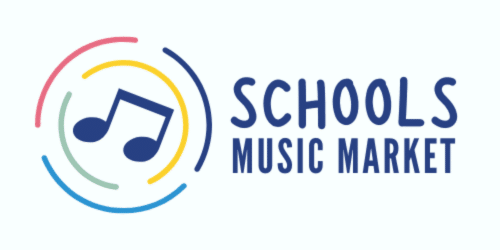Becoming a music teacher opens doors to a fulfilling career that melds a love for music with the joy of education. Whether you envision teaching in schools, offering private lessons, or contributing to community programs, the journey involves a mix of formal education, hands-on experience, and personal growth. In this comprehensive guide, discover the steps to pursue a career in becoming a music teacher and explore ways to expand your impact.
Step By Step – Becoming A Music Teacher
Understanding the Role of a Music Teacher Before Becoming A Music Teacher.
Before delving into the “how,” let’s grasp the essence of the “what.” Becoming a music teacher includes various aspects of the role which encompasses inspiring students, imparting musical knowledge, and nurturing an appreciation for diverse genres. They tailor teaching methods to accommodate various learning styles and abilities.
Step 1: Cultivate Your Musical Foundation
A. Personal Musicianship: Begin by nurturing your musicianship, mastering at least one instrument or voice. Expand your repertoire, delve into music theory, and explore diverse genres.
B. Formal Training: Seek formal training through music lessons and theory classes, available at local music schools, community colleges, or through private tutors.
C. Continuous Learning: Stay current with evolving musical trends, technology, and teaching methods.
Step 2: Acquire Formal Education
A. Degree Programs: Most music teaching positions require a bachelor’s degree in music education, covering music theory, conducting, performance, educational psychology, pedagogical methods, and curriculum design.
B. Specializations: Choose specializations like choral, instrumental, or general music education.
C. Accreditation: Ensure your selected program is accredited by recognized bodies like the National Association of Schools of Music (NASM).
Step 3: Gain Practical Experience
A. Student Teaching: Many degree programs include a student teaching component, offering hands-on experience in a classroom under the supervision of an experienced teacher.
B. Workshops and Masterclasses: Participate in workshops and masterclasses to refine skills and learn from seasoned professionals.
C. Performance Experience: Regularly perform and engage in ensembles to grasp group dynamics and performance nuances.
Step 4: Certification and Licensing
A. State Certification: Public school teachers, in many regions, must pass a state-approved education program, a general teaching certification exam, and a music-specific exam.
B. Background Checks: Teachers often undergo background checks for student safety.
C. Continuing Education: Some states require ongoing professional development to maintain teaching certification.
Step 5: Develop Teaching Skills
A. Classroom Management: Hone skills in managing classrooms for a positive learning environment.
B. Teaching Strategies: Learn diverse strategies catering to various learning styles and abilities.
C. Curriculum Planning: Understand how to plan a curriculum meeting educational standards and inspiring students.
D. Assessment: Master effective student progress assessment and constructive feedback.
Step 6: Find Employment
A. Networking: Build professional contacts through student teaching, conferences, and music education organizations.
B. Job Search: Explore job opportunities in schools, music academies, and community centers.
C. Resumes and Portfolios: Create professional resumes and portfolios showcasing education, experience, and performances.
D. Interview Preparation: Prepare for interviews by researching common questions and conducting mock interviews.
Step 7: Consider Advanced Degrees and Professional Development
A. Master’s and Doctoral Degrees: Advanced degrees can lead to higher-level teaching positions and administrative roles.
B. Professional Organizations: Join organizations like the Music Teachers National Association (MTNA) for resources, networking, and professional development.
C. Workshops and Certifications: Attend workshops and acquire additional certifications to expand expertise and teaching repertoire.
Step 8: Expand Your Career
A. Private Lessons: Offer private lessons for additional income and one-on-one teaching experiences.
B. Online Teaching: Embrace technology with video conferencing platforms for virtual lessons.
C. Community Involvement: Participate in local theaters, choirs, and community events to broaden your impact.
D. Publishing and Content Creation: Consider publishing educational materials or creating online content to share expertise.
Personal and Professional Qualities of Successful Music Teachers
Beyond formal education and certifications, successful music teachers often share certain personal and professional qualities:
- Passion for Music and Teaching: A genuine love for music and a desire to inspire others is foundational.
- Patience and Adaptability: Teachers must patiently adapt their methods to individual student needs.
- Communication Skills: Clear communication is essential for teaching concepts effectively and collaborating with colleagues.
In conclusion, embarking on the journey to becoming a music teacher is a gratifying pursuit that intertwines a profound passion for music with the joy of imparting knowledge. This comprehensive guide has outlined the essential steps, from cultivating a strong musical foundation to acquiring formal education, gaining practical experience, and obtaining certifications. As you navigate through the intricacies of developing teaching skills and finding employment, remember that personal and professional qualities play a pivotal role in shaping a successful music teaching career.
The dedication to continuous learning and staying abreast of evolving trends, coupled with a commitment to adaptability, patience, and effective communication, positions aspiring music teachers for enduring success. Beyond securing initial certifications, considering advanced degrees and ongoing professional development opens doors to higher-level opportunities and further enriches your teaching repertoire.
As you progress in your career when becoming a music teacher, the exploration of various avenues, such as offering private lessons, engaging in online teaching, and participating in community events, allows for a broader impact. Whether you find yourself in schools, music academies, or community centers, the opportunity to inspire and foster a love for music in students is a rewarding endeavor.
In essence, becoming a music teacher is not just about following a career path; it is a lifelong commitment to the art of music and the invaluable role of education. With each step, you contribute to a harmonious blend of passion, expertise, and dedication that shapes the next generation of musicians. As you embark on this fulfilling journey, may your love for music reverberate through the notes you teach, creating a lasting legacy of inspiration in the hearts and minds of your students.
For resources to support your music classroom if you are planning on becoming a music teacher, click here.



